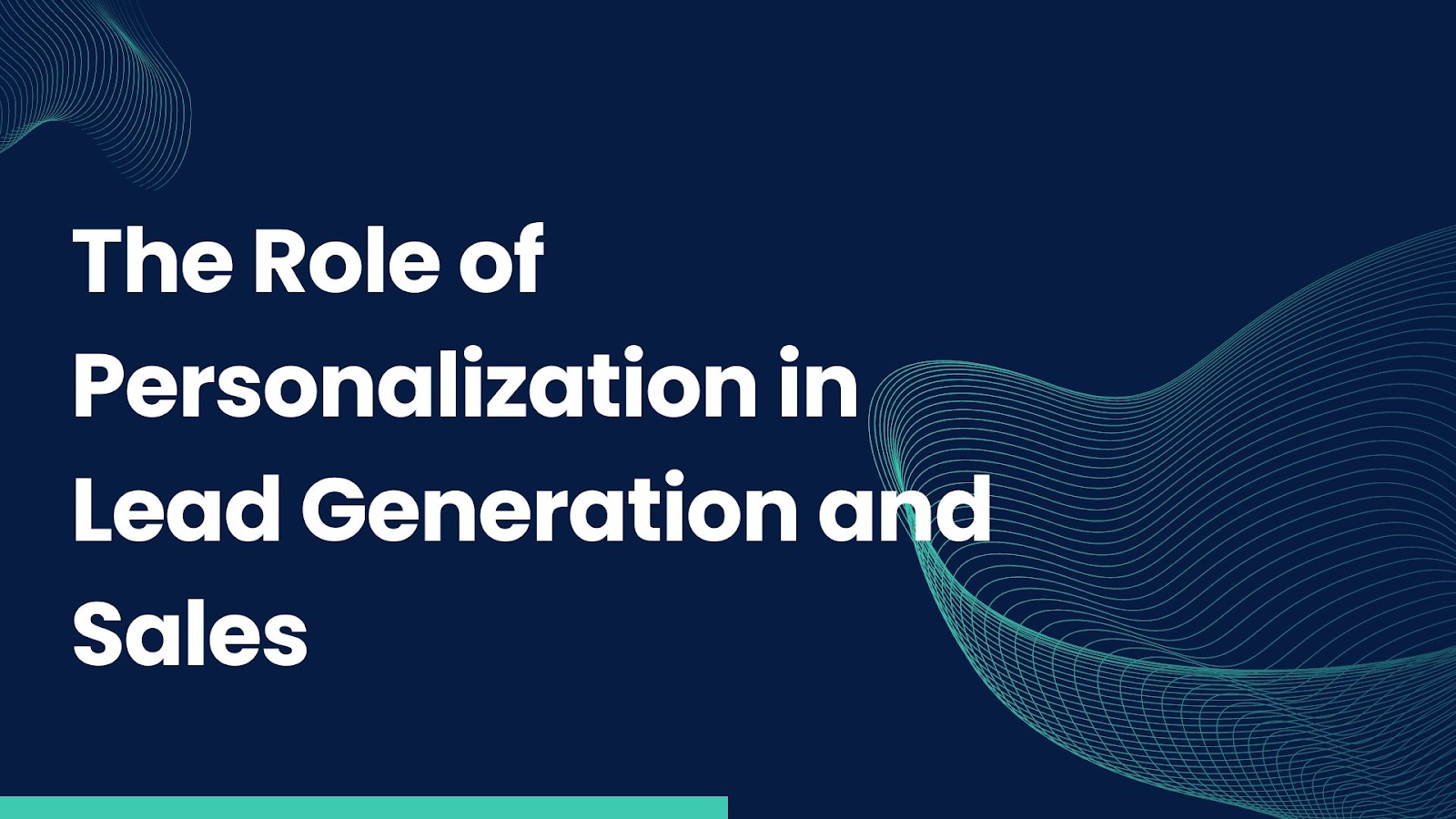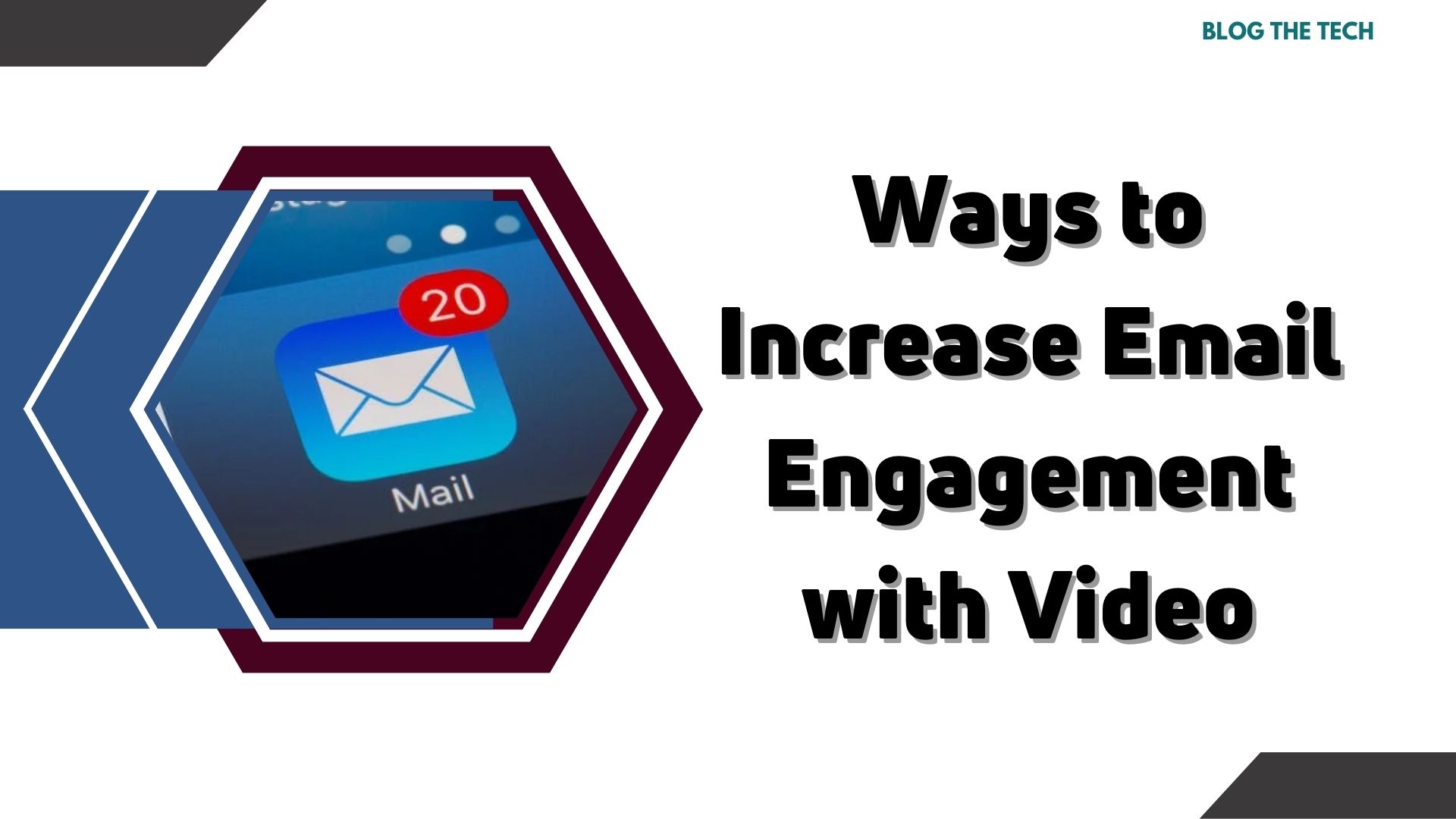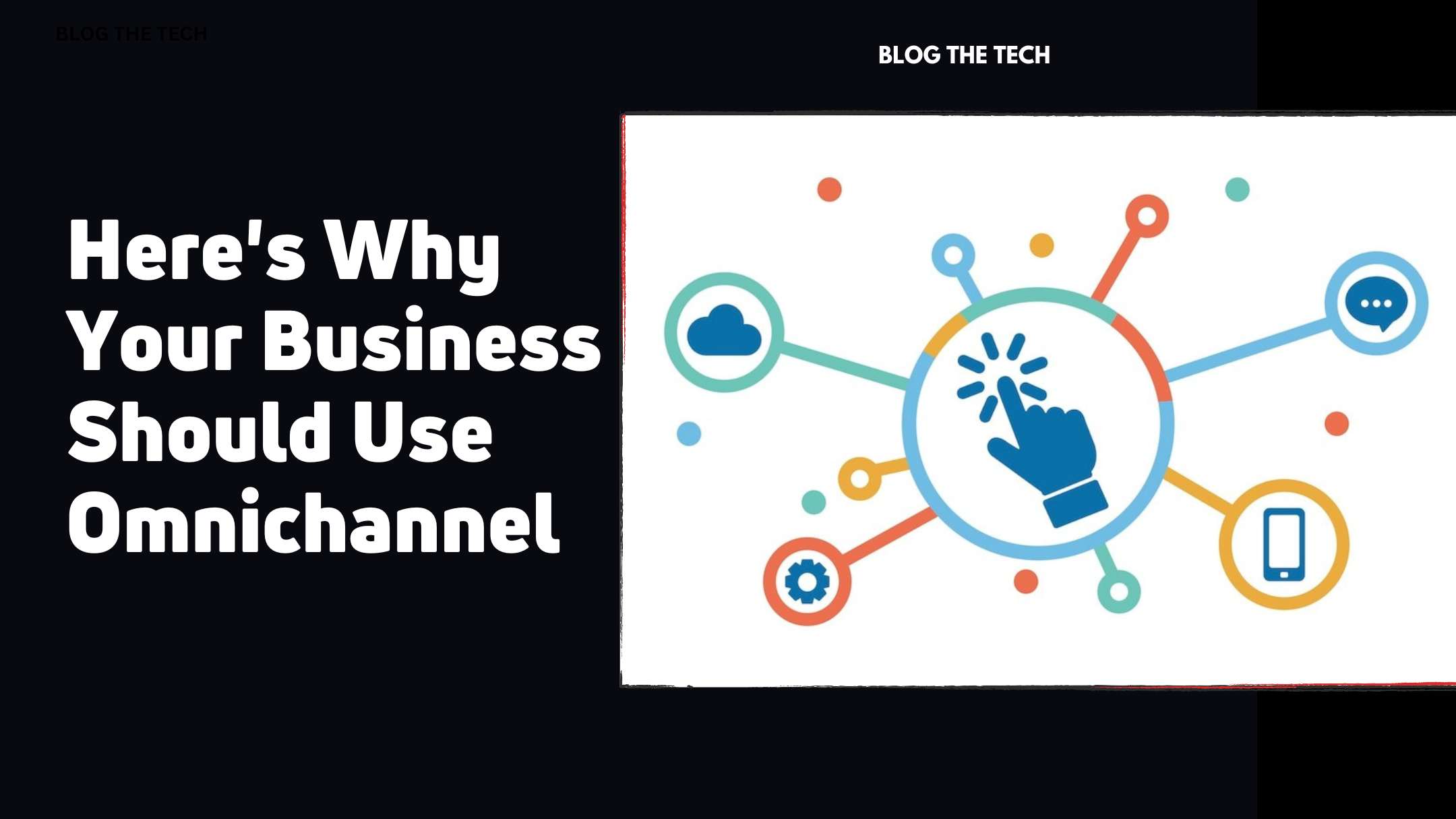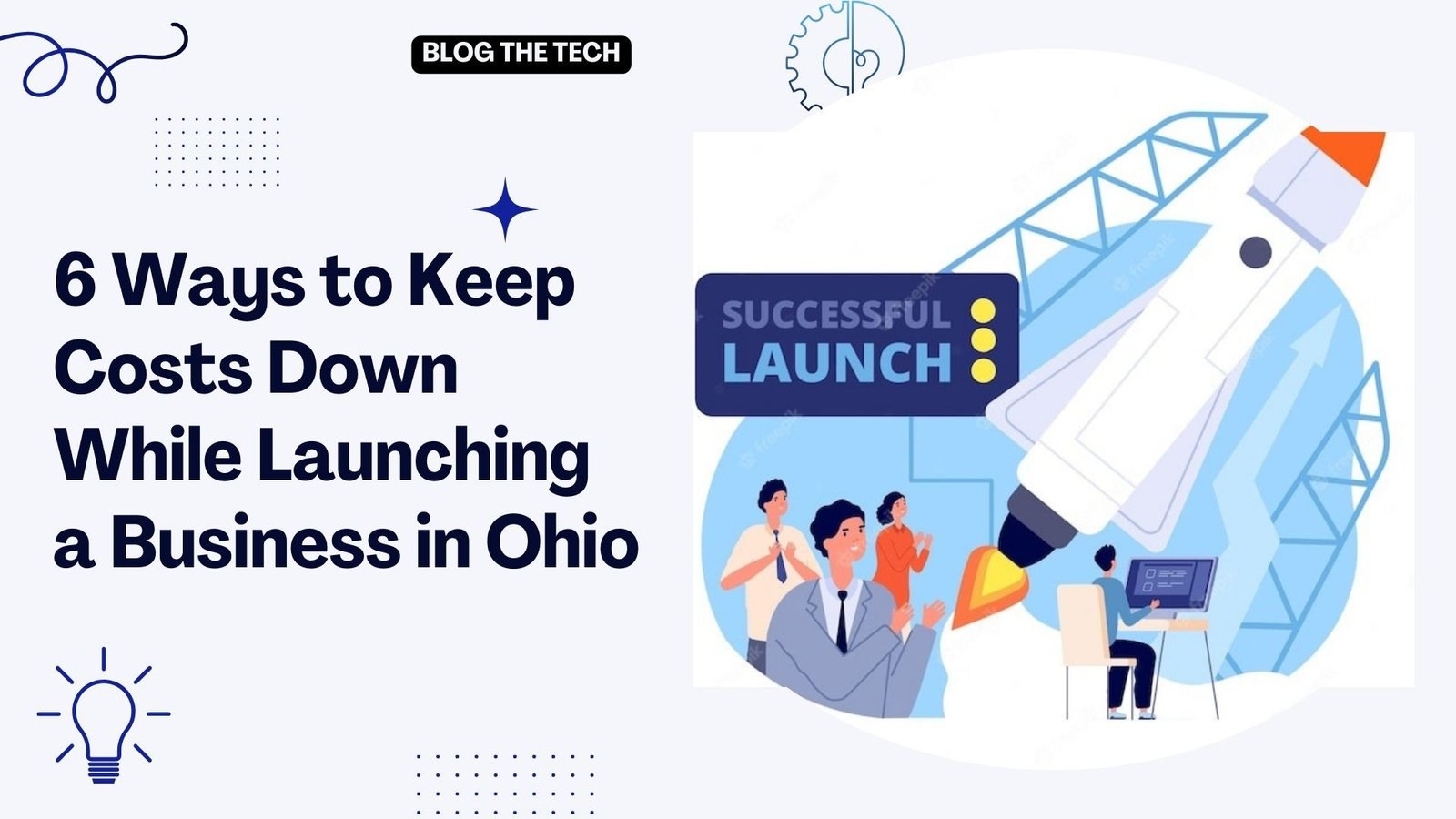
Personalization in lead generation has become a significant factor in the competitive business arena of today. Success hinges on the ability to draw in qualified leads and effectively transform them into sales. A potent approach that has gained prominence in recent times is the utilization of personalization.
By tailoring marketing efforts and sales interactions to individual prospects, businesses can enhance their lead generation and sales outcomes. In this article, we will explore the importance of personalization in lead generation and its impact on generating qualified appointments.
The Power of Personalization in Lead Generation and Sales
Personalization in lead generation and sales has proven to be a game-changer in marketing and sales. This strategy involves customizing marketing messages, offers, and interactions to align with the specific needs and preferences of individual prospects. Moving beyond generic mass communication allows businesses to craft a more personalized, engaging experience for potential customers.
One of the key benefits of personalization is its ability to build trust and connection with prospects. When businesses take the time to understand the pain points, interests, and goals of their target audience, they can create targeted content and offers that resonate with them on a deeper level. This level of understanding and personalization makes prospects feel valued and appreciated, leading to stronger trust and connection with the brand.
Furthermore, personalization enhances the overall customer experience. From the initial interaction to the final purchase decision, prospects appreciate tailored recommendations, relevant content, and personalized communication. By delivering these personalized experiences throughout the customer journey, businesses demonstrate that they value the individual needs of their prospects, thereby increasing the chances of generating qualified appointments.
Additionally, personalization plays a crucial role in lead nurturing. By utilizing data and insights, businesses can develop targeted and relevant nurture campaigns. These campaigns can address specific pain points, educate prospects about their unique challenges, and showcase how the business’s offerings can provide solutions. As a result, prospects are more likely to progress through the sales funnel, leading to qualified appointments.
The Role of Personalization in Lead Generation and Sales
Personalization in lead generation and sales plays a crucial role in driving the success of lead generation and sales efforts. Businesses can influence the quality and quantity of qualified appointments by tailoring marketing messages, offers, and interactions to individual prospects.
First and foremost, personalization in lead generation is instrumental in attracting qualified leads. By understanding the unique needs and preferences of their target audience, businesses can create compelling and relevant content that resonates with these prospects. This targeted approach helps filter out unqualified leads and attracts those who are interested in the products or services offered. By tailoring their messaging and offers to address specific pain points and showcase how their offerings can provide solutions, businesses can capture the attention of qualified leads.
Moreover, personalization critically enhances conversion rates. By leveraging data and insights, businesses can deliver personalized product recommendations, tailored offers, and individualized communication. These personalized touchpoints make prospects feel valued and understood, increasing the likelihood of converting them into qualified appointments. Prospects who receive personalized attention and feel that a business cares for their specific needs are more inclined to trust the brand and engage in the desired action.
Personalization in lead generation also extends its influence beyond lead generation and into customer retention. By continuing to personalize the customer experience post-purchase, businesses can foster loyalty and long-term relationships. Satisfied customers are more likely to become repeat buyers and advocates for the brand, leading to increased referrals and sustained sales growth. Personalization ensures that customers feel valued even after the initial purchase, further solidifying their trust and commitment to the business.
The Impact of Personalized Content
Personalized content has a profound impact on lead generation and sales. By customizing content to meet the individual needs and preferences of prospects, businesses can create a more relevant and engaging experience, driving better results.
A key aspect of personalized content is its ability to meet each prospect’s needs. By understanding their pain points, challenges, and goals, businesses can develop content that addresses these factors. This might involve creating targeted blog posts, articles, or videos that provide solutions to their specific problems. When prospects encounter content that speaks to their needs, they are more likely to engage with it, spend more time on the website, and consider the business as a trusted source of information.
Personalization also involves adjusting the format of the content and its delivery channels. Different prospects may prefer different types of content, such as videos, infographics, or e-books. By offering content in various formats, businesses can cater to the individual preferences of their target audience, increasing the chances of capturing their attention and resonating with them on a deeper level. Furthermore, delivering personalized content through the preferred channels of prospects, such as email, social media, or targeted advertisements, enhances the likelihood of reaching them.
The impact of personalized content goes beyond engagement and extends to conversion rates. When prospects encounter content that resonates with their needs and provides relevant solutions, they are more likely to engage in desired actions like signing up for a newsletter, downloading a resource, or requesting a consultation. Personalized content establishes credibility, builds trust, and positions the business as an expert in their field, making prospects more likely to convert into qualified appointments or sales.
Personalization Strategies for Effective Lead Generation
To maximize the impact of personalization on lead generation, businesses can implement specific strategies that leverage customer data and segmentation. Employing these strategies enables businesses to devise targeted and highly pertinent campaigns that connect with their ideal prospects.
- Utilizing customer data and segmentation: Effective lead generation starts with understanding your audience. By leveraging customer data, businesses can gain valuable insights into the preferences, behaviors, and demographics of their target audience. This data can be collected through various channels, such as website analytics, CRM systems, and customer surveys. Once collected, businesses can segment their audience based on common characteristics and interests. This segmentation allows for more precise targeting and the development of tailored marketing messages that are more likely to resonate with specific segments of prospects.
- Implementing personalized email marketing and retargeting tactics: Email marketing remains a powerful tool for lead generation, and personalization can significantly enhance its effectiveness. With customer data, businesses can personalize email campaigns by addressing recipients by name, adapting the content to their specific interests, and sending offers or recommendations informed by their previous interactions or purchase history. Personalized emails have higher open rates, click-through rates, and conversion rates, as they provide a more individualized and relevant experience for prospects.
Another effective strategy, retargeting, uses personalization to re-engage prospects who demonstrated initial interest but did not evolve into qualified leads. By utilizing website tracking and cookies, businesses can serve personalized ads to prospects based on their previous interactions with the brand. These ads can display tailored content or offer that directly address the prospects’ specific needs or pain points, increasing the chances of re-engaging them and converting them into qualified appointments.
By implementing this personalization in lead generation and sales strategies, businesses can enhance their lead-generation efforts. Leveraging customer data and segmentation allows for precise targeting and customized messaging, resulting in higher engagement and conversion rates. Personalized email marketing and retargeting tactics create a more personalized experience for prospects, increasing the likelihood of capturing their attention and generating qualified appointments. When combined with effective content and a seamless customer journey, these strategies can significantly boost lead generation and contribute to overall sales growth.
Conclusion
In conclusion, personalization in lead generation and sales is a game-changing strategy in the realm of lead generation and sales. By tailoring marketing messages, offers, and interactions to individual prospects, businesses can create a more personalized and engaging experience that resonates with their target audience. The power of personalization lies in its ability to build trust, enhance the customer experience, and improve lead nurturing.
Businesses can gain a competitive edge in today’s dynamic marketplace by attracting qualified leads, increasing conversion rates, and fostering long-term customer relationships. Businesses can maximize their lead generation efforts and drive sustained sales growth by implementing personalization strategies, including the use of customer data, personalized email marketing, and retargeting tactics. Embracing personalization as a core strategy will position businesses for success in the evolving landscape of marketing and sales.



